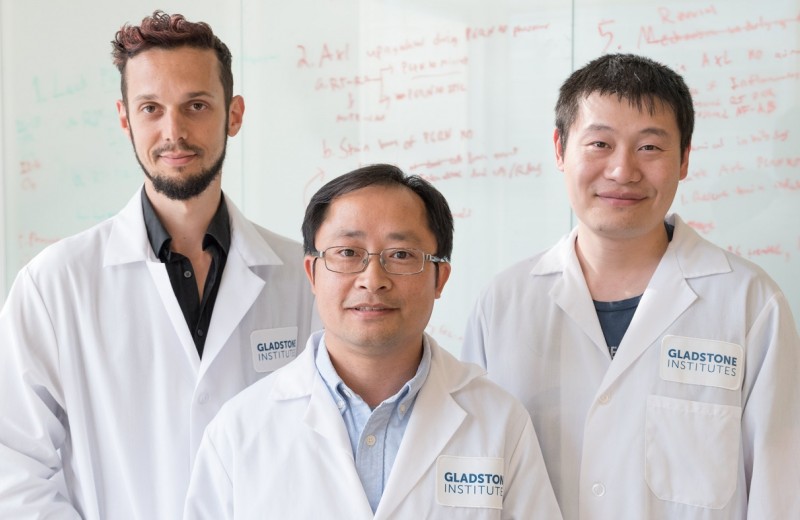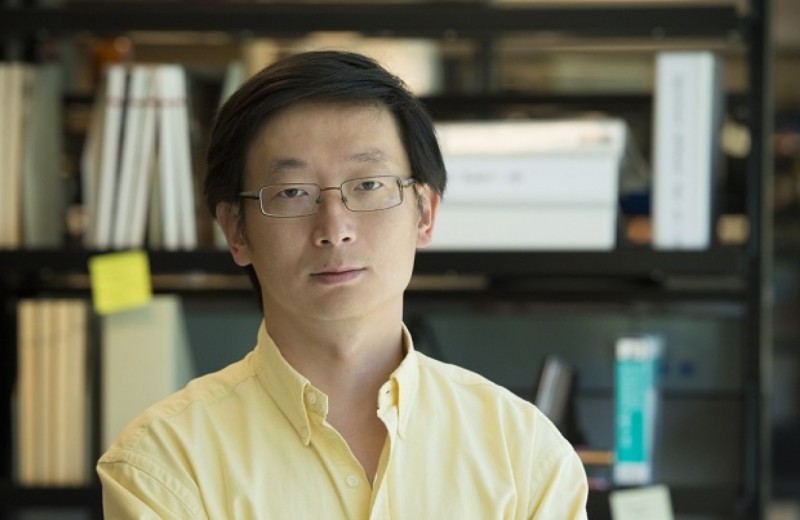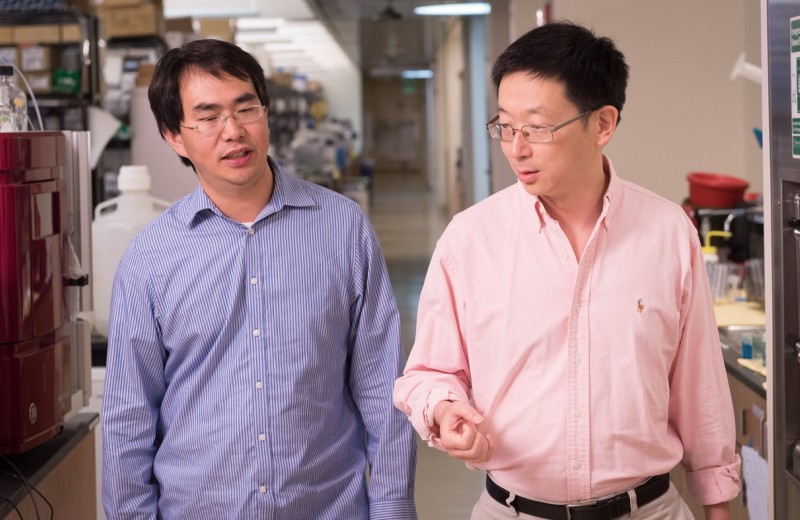
Yu Zhang, MD, PhD, is a postdoctoral scholar in the laboratory of Deepak Srivastava, MD. She joined Gladstone along with Sheng Ding, PhD, after completing her MD at Peking University Health Science Center, and her PhD in developmental biology at Tsinghua University.
What brought you to Gladstone?
Several years ago, when I was still a fresh postdoc, I moved to Gladstone with Sheng Ding’s lab. It was not easy to move long distances twice within 1 year (I had just moved from China to San Diego). However, I was fascinated by induced pluripotent stem cell research, and moreover, I was attracted to Gladstone’s reputation as a great place for postdoc training.
What do you like about Gladstone?
What I like most about Gladstone is its wonderful training environment. Gladstone not only cares about research, but it also cares about career development with a big vision. I have attended a lot of training courses, including topics like scientific management, leadership, the art of lecturing, and English as a Second Language, which benefited me a lot. In addition, the work environment is friendly and encouraging. I have been given a lot of support in my research and have made many wonderful friends.
Were you interested in science as a child?
When I was little, my favorite TV program was Human and Nature, which introduced me to all kinds of animals and plants. Before I realized what science was, I was simply surprised to learn there were so many different species on the earth, and I was curious about how amazing life could be.
Why did you decide to go to graduate school?
When I graduated from medical school, I could work in clinics with patients. However, I wanted to learn about the underlying life science—what causes disease and how it can be prevented. While in graduate school, I realized how rapidly life science advances, and I believe it will fundamentally revolutionize disease diagnosis and therapy. This excites me.
What or who influenced your decision to work in science?
While I was growing up, my mom worked in a hospital, and she showed me around the clinical lab that she worked in. The first time that I looked into a microscope, I didn’t know what I saw, but it piqued my curiosity of life science.
What do you do when you are not working in the lab?
I like to make all kinds of handicrafts. I really enjoy the process, and it doesn’t have the same challenges as working in a lab. Some experiments fail, but every craft has its own beauty. In addition, I like to read books, mostly biographies and novels. Every time I walk out of a library, I feel at peace.
If you could learn to do anything, what would it be?
I’d like to learn to play a musical instrument. I like music. It brings me peace and happiness, and even when I am working, it helps me concentrate.
What is your hidden/unique talent?
I think I am good with locations and directions. It is easy for me to find a way out or tell where something is, even if I saw it a long time ago. I might have developed this ability from my father—he had worked as a surveyor.
Name one thing that not many people know about you.
I like to talk with people. Sometimes I appear shy and reserved, but it’s only because I am building confidence in my English. For several years, I have been taking Linda Mahley’s English as a Second Language course at Gladstone. She has become a wonderful life mentor to me.
If you could meet any scientist from any point in time, who would it be and why?
I can’t name someone, because I want to meet scientists in 2070. I want to know how science will influence our lives in 50 years. At its rapid pace, I struggle to imagine how science will influence the way humanity evolves many years from now.
Support Discovery Science
Your gift to Gladstone will allow our researchers to pursue high-quality science, focus on disease, and train the next generation of scientific thought leaders.
Roddenberry Gift Ushers Gladstone Stem Cell Research into the Future
Roddenberry Gift Ushers Gladstone Stem Cell Research into the Future
The path to medical breakthroughs lies in bold, ambitious science
Donor Stories Institutional News Spinal Cord Injuries Alzheimer’s Disease Diabetes Roddenberry Stem Cell Center Bruneau Lab Ding Lab Huang Lab McDevitt LabResearchers Create First Stem Cells Using CRISPR Genome Activation
Researchers Create First Stem Cells Using CRISPR Genome Activation
Activating a single gene is sufficient to change skin cells into stem cells.
News Release Research (Publication) Cardiovascular Disease Ding Lab CRISPR/Gene Editing Stem Cells/iPSCsStudy Reveals How to Reprogram Cells in our Immune System
Study Reveals How to Reprogram Cells in our Immune System
The discovery could improve treatments for autoimmune diseases and cancer
Ding Lab Stem Cells/iPSCs Immunology



